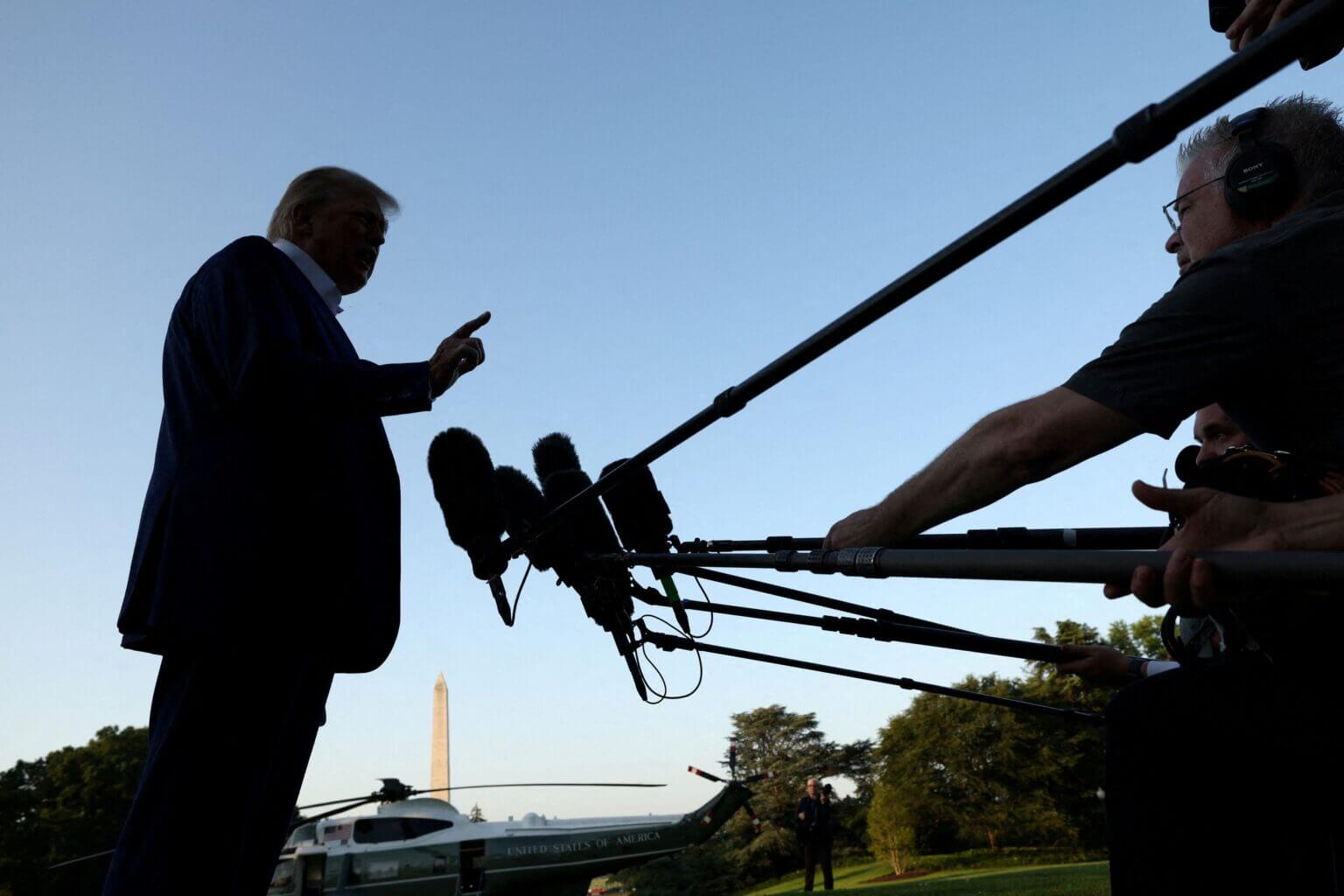Reevaluating Transatlantic Security: Trump’s Ambiguous Stance on NATO’s Collective Defense
THE HAGUE – During a flight to the Netherlands for a NATO summit, President Donald Trump made remarks that cast doubt on his unwavering support for the alliance’s core principle of collective defense. While he expressed a friendly tone towards NATO allies, he also questioned the clarity of his commitment to mutual security, stating that his dedication “depends on your definition” of Article 5, NATO’s foundational security guarantee.
Uncertain Signals from the U.S. Leader
As Air Force One soared towards the gathering of NATO heads of state, Trump’s comments raised concerns among alliance officials. Historically, his stance on NATO has been inconsistent-initially marked by skepticism and calls for increased European defense spending, then by a more conciliatory approach during his second term. Nonetheless, his recent remarks suggest lingering ambiguity about the alliance’s core commitments.
When questioned about Article 5, which stipulates that an attack on any member is considered an attack on all, Trump responded, “It depends on your definition. There are multiple interpretations of Article 5, you know that, right?” He then emphasized his personal rapport with European leaders, stating, “I’m committed to being their friends and helping them,” adding that he would provide a definitive stance once he arrived at the summit, preferring not to do so from the aircraft.
Shifting U.S. Attitudes Toward NATO
In recent months, the U.S. administration has maintained a generally positive outlook on NATO, especially in light of increased military activity in Europe following Russia’s invasion of Ukraine in 2022. The alliance is expected to endorse a plan during the summit to elevate defense spending to 5 percent of each member’s gross domestic product (GDP), a substantial increase from the current 2 percent target. This move aims to bolster collective security amid ongoing geopolitical tensions.
European Concerns and U.S. Reassurance
Despite Trump’s comments, NATO Secretary General Mark Rutte reassured European nations that the United States remains fully committed to the alliance. Speaking at the summit’s opening, Rutte urged member countries to “stop worrying” about U.S. dedication, emphasizing that as long as European nations increase their defense budgets and sustain support for Ukraine, the alliance’s strength will endure.
“There is complete commitment from the U.S. president and leadership,” Rutte affirmed. “However, there is an expectation that European countries and Canada address the persistent issue of defense spending and industrial capacity.” He encouraged allies to focus on implementing investment plans, maintaining a robust industrial base, and supporting Ukraine’s defense efforts, rather than dwelling on uncertainties about U.S. intentions.
Trump’s Public Statements and Diplomatic Nuances
While aboard Air Force One, Trump also shared positive sentiments about NATO on social media, describing the upcoming summit as potentially more stable than recent diplomatic challenges involving Israel and Iran. He expressed optimism about reconnecting with European allies and anticipated productive discussions.
Balancing Relations with Russia
Despite his supportive rhetoric towards NATO, Trump has repeatedly voiced a desire to improve relations with Russian President Vladimir Putin. This stance has caused concern among European policymakers, who view Russia as their primary security threat. NATO intelligence suggests that Putin perceives attacking a member state as a significant risk, believing that the alliance’s security guarantees remain intact. A senior NATO official noted that Putin’s confidence in Article 5’s deterrent effect remains “quite solid,” indicating that Moscow is cautious about provoking a full-scale conflict.
Conclusion: Navigating Uncertainty in Transatlantic Security
As the NATO summit unfolds, the alliance faces the challenge of maintaining unity amid mixed signals from the United States. While official statements reaffirm unwavering commitment, President Trump’s comments highlight the importance of continuous dialogue and reassurance among allies. The evolving geopolitical landscape underscores the need for clear, consistent support to ensure the resilience of the transatlantic security framework in an increasingly complex world.

